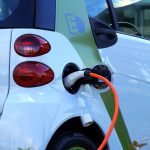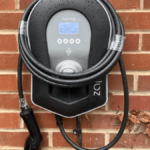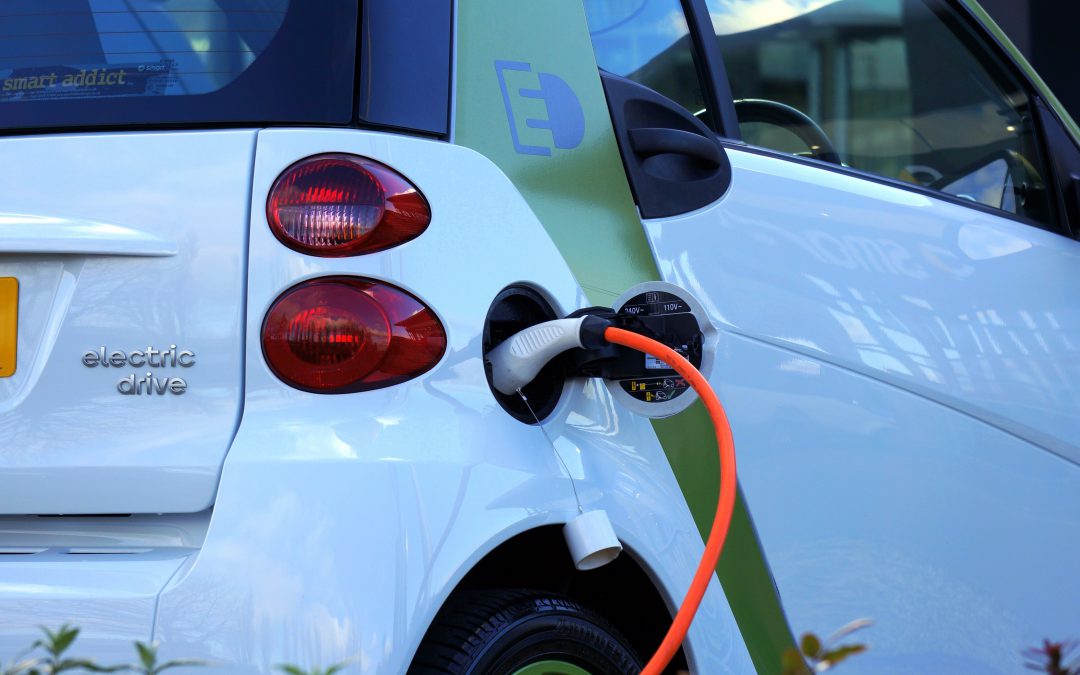Charging time is one of the main challenges for electric vehicle (EV) buyers, along with driving range. The truth is, it takes longer to charge an electric vehicle than to fill up a conventional car with fuel. But there are ways to make charging easier and more convenient. Here are some tips to help you understand electric car charging.
1. Bigger batteries mean longer charging times
This is a simple equation. Cars that can travel farther on a single charge have larger batteries, and they take more time to charge than cars with smaller batteries.
2. Larger cars use more power
Larger electric cars tend to have bigger batteries, but they also weigh more and consume more electricity. This means that a smaller, lighter car can go further with the same amount of electricity.
3. The terms can be misleading
Be careful with the words used to describe charging. Fast, Rapid and Ultra-Rapid are common terms, but they don’t have a clear industry standard. They all refer to the speed at which a charger can deliver electricity to the car’s batteries.
4. 30 minutes can make a difference
A quick stop at a public charger can give you a significant boost in range. Many electric cars claim that you can charge them to 80 percent in 30 minutes, but this depends on the size of the battery and the power of the charger. A small EV could get another 100 miles of range in half an hour, for example.
5. You can relax at home
Home charging is not a race. Most electric cars can be fully charged overnight, using cheaper off-peak electricity and giving you a full range in the morning.
You probably won’t need to charge your car from empty every night, either. You will likely have some leftover range from the previous day, so your overnight charge will be more of a top-up than a full refill. That means that even cars with huge batteries, like the Audi E-tron 55, can get a decent amount of charge at home, although it could take 14 hours to charge it from empty.
6. Charging at work could be free
This is a great option for many people, as it allows you to top up your battery during the day, possibly using free electricity from your employer. Many workplaces have similar charging stations to those used at home.
7. Charging on the road is the hardest
This is where Tesla owners have an edge. Tesla cars have impressive battery range, and the company’s Supercharger network offers ‘the world’s fastest electric vehicle charging’. There are also Superchargers all over Europe, which makes long-distance travel possible.
For other electric car owners, it’s important to know what kind of charging you will find when you need a power boost. Many places offer a variety of charging options. You might see a Type 2 slow charger, a Type 2 fast charger, and a CCS rapid charger of maybe 50kW and 100kW.
| EV (Electric Vehicle) | Charging Time | |||
|---|---|---|---|---|
| Slow (3kW) | Fast (7kW) | Rapid (50kW) | Ultra-Rapid (150kW) | |
| 0-100% | 0-100% | 20-80% | 20-80% | |
| Porsche Taycan 4S | 35 hrs | 12 hrs | 1 hr | 20 mins |
| Tesla Model 3 | 24-36 hrs | 8-12 hrs | 40-60 mins | 20 mins |
| Vauxhall Corsa-e | 22 hrs | 7 hrs | 40 mins | 20 mins |
This table shows you some approximate times, and what to expect when you charge your electric car in different situations. You can use a regular household socket (Slow), a home wall box or a public charger (Fast), or a high-powered charger on main roads and highways (Rapid and Ultra-Rapid).
Conclusion
Choosing the best home EV charger for your home depends on several factors, such as the type, speed, size, design, and features of the charger, as well as the compatibility, specifications, and preferences of your car and property. By comparing different models and brands of home EV chargers, you can find the one that suits your needs and budget. A home EV charger can make your life easier, cheaper, and greener by allowing you to charge your car at home in a fast and convenient way.
As you can see from above, an EV Electric Vehicle Charger is a smart, green, and cost-effective solution that allows you to charge your EV with surplus energy from your solar panels or wind turbine. It also has many other features that make it easy, convenient, and safe to use.
If you are interested in installing an EV Charger at your home or business, contact us today on 01268 928 690 or via the ‘Enquire Now’ button below. We are an authorised installer of myenergi products and we can help you with every step of the process, from a free no-obligation consultation to installation to aftercare.
Frequently Asked Questions about EV Chargers
An EV charger is a device that supplies electric power to an electric vehicle (EV) to recharge its battery. EV chargers can be installed at home, at work, or in public places.
To charge your EV at home, you need to have a home EV charger installed by a qualified electrician. A home EV charger can be either tethered or untethered, depending on whether it has a fixed cable or a socket. You also need to have a suitable electricity supply and a dedicated circuit for your charger. You can plug your car into your home charger using the appropriate cable and start charging.
The time it takes to charge your EV at home depends on the charging speed of your home charger and the battery capacity of your car. Most home EV chargers have a charging speed of either 3 kW or 7 kW, which can add about 15 miles or 30 miles of range per hour of charging respectively. Some home EV chargers can deliver up to 22 kW of charging speed, which can add about 80 miles of range per hour of charging, but they require a three-phase electricity supply and a compatible car. The battery capacity of your car determines how much energy it can store and how far it can travel on a single charge. The larger the battery, the longer it takes to charge.
The cost of charging your EV at home depends on the electricity tariff you pay and the amount of energy you use. The electricity tariff is the price you pay per unit of electricity (kWh) and it may vary depending on the time of day, the supplier, and the type of contract. The amount of energy you use depends on the battery size of your car and the state of charge. The higher the battery size and the lower the state of charge, the more energy you need to charge. To calculate the cost of charging your EV at home, you can multiply the electricity tariff by the amount of energy you use.
Charging your EV at home has many benefits, such as: Convenience: You can charge your car whenever you want and avoid waiting in queues or searching for available public chargers. Savings: You can save money by using cheaper electricity tariffs at home and avoiding fees or subscriptions for public chargers. Greenness: You can reduce your carbon footprint by using renewable energy sources at home, such as solar panels or wind turbines.
Some features that can enhance the functionality and convenience of your home EV charger are: Smart charging: This feature allows your charger to automatically adjust the timing and rate of charging based on various factors, such as electricity tariffs, grid demand, renewable energy availability, and your driving schedule. Wi-Fi or Bluetooth connectivity: This feature enables your charger to connect to the internet or your smartphone via Wi-Fi or Bluetooth. This allows you to remotely monitor and control your charging sessions, as well as access data and statistics on your energy consumption and costs. Solar integration: This feature allows your charger to work with your solar panels (if you have any) to use the excess solar energy generated by your panels to charge your car. Public network integration: This feature allows your charger to link with a public network of charging points across the UK. This gives you access to thousands of public chargers that you can use when you are away from home. Some networks may also offer discounts or rewards for using their chargers.
Latest EV Electric Vehicle Charger Posts
- OZEV Grant 2023 – The EV Charger Grant
 Are you thinking of buying an electric vehicle (EV) or a plug-in hybrid vehicle (PHEV) and wondering how to charge it at home? If so, you might be interested in the OZEV grant, a government scheme that can help you save money on installing a home charging point. In this blog post, we will explain… Read more: OZEV Grant 2023 – The EV Charger Grant
Are you thinking of buying an electric vehicle (EV) or a plug-in hybrid vehicle (PHEV) and wondering how to charge it at home? If so, you might be interested in the OZEV grant, a government scheme that can help you save money on installing a home charging point. In this blog post, we will explain… Read more: OZEV Grant 2023 – The EV Charger Grant - How To Choose The Best EV Charger For Your Home
 If you own an electric vehicle (EV) or are planning to buy one in the near future, you might be wondering how to charge it at home. Charging your EV at home is not only convenient, but also cheaper and greener than using public charging points. However, there are many factors to consider when choosing… Read more: How To Choose The Best EV Charger For Your Home
If you own an electric vehicle (EV) or are planning to buy one in the near future, you might be wondering how to charge it at home. Charging your EV at home is not only convenient, but also cheaper and greener than using public charging points. However, there are many factors to consider when choosing… Read more: How To Choose The Best EV Charger For Your Home - Why You Should Choose Zappi Electric Vehicle Chargers for Your Home or Business
 Electric vehicles (EVs) are becoming more popular than ever, thanks to their many benefits for the environment, the economy, and the drivers. EVs use less or no fuel, which saves money and reduces emissions. They also have lower running and maintenance costs than petrol or diesel vehicles. Some EVs can use renewable electricity sources, which… Read more: Why You Should Choose Zappi Electric Vehicle Chargers for Your Home or Business
Electric vehicles (EVs) are becoming more popular than ever, thanks to their many benefits for the environment, the economy, and the drivers. EVs use less or no fuel, which saves money and reduces emissions. They also have lower running and maintenance costs than petrol or diesel vehicles. Some EVs can use renewable electricity sources, which… Read more: Why You Should Choose Zappi Electric Vehicle Chargers for Your Home or Business - How long do electric vehicles take to charge?
 Charging time is one of the main challenges for electric vehicle (EV) buyers, along with driving range. The truth is, it takes longer to charge an electric vehicle than to fill up a conventional car with fuel. But there are ways to make charging easier and more convenient. Here are some tips to help you… Read more: How long do electric vehicles take to charge?
Charging time is one of the main challenges for electric vehicle (EV) buyers, along with driving range. The truth is, it takes longer to charge an electric vehicle than to fill up a conventional car with fuel. But there are ways to make charging easier and more convenient. Here are some tips to help you… Read more: How long do electric vehicles take to charge? - How to Monitor and Control Your Energy Usage with the myenergi App
 If you are looking for a smart and easy way to track and manage your solar energy consumption, generation and storage, you might want to check out the myenergi app. This clever little app lets you remotely monitor and control your set of myenergi devices, such as the Zappi EV Electric Vehicle Chargers, the Eddi… Read more: How to Monitor and Control Your Energy Usage with the myenergi App
If you are looking for a smart and easy way to track and manage your solar energy consumption, generation and storage, you might want to check out the myenergi app. This clever little app lets you remotely monitor and control your set of myenergi devices, such as the Zappi EV Electric Vehicle Chargers, the Eddi… Read more: How to Monitor and Control Your Energy Usage with the myenergi App

